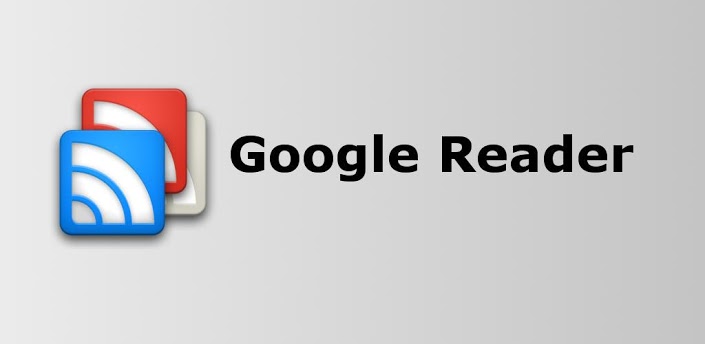As many of our readers will know by now, Google is killing their RSS Reader application on July 1. When I read this terrible, awful, abominable news, my jaw literally dropped to the ground. Google Reader has been a staple in my tech life since its inception in 2005. How could Google take away a service that I use almost as often as GMail?
Here’s Google’s explanation:
We launched Google Reader in 2005 in an effort to make it easy for people to discover and keep tabs on their favorite websites. While the product has a loyal following, over the years usage has declined. So, on July 1, 2013, we will retire Google Reader. Users and developers interested in RSS alternatives can export their data, including their subscriptions, with Google Takeout over the course of the next four months.
Not only is that a sorry excuse for an explanation, they tucked this reasoning in between a few other Google services that I have actually never used, minimizing the Reader product to the likes of Cloud Connect or Building Maker (my apologies to those of you who do use these services). Google refers to the closure of the some 70 apps or services since 2011, part of a “spring cleaning”. Throw out some old clothes. Maybe do some dusting? Tear my heart out of my chest. No big deal.
Now, of course we have no way to calculate Reader usage. Only Google is able to do that. But I know of at least 78,000 users who have voiced their feelings on Reader by signing a petition on Change.org (Go sign the petition if you haven’t already).
This begs the question: How much is enough? Almost 80,000 users seems like a large enough base to let the product live. Even if Google stopped supporting the platform and let it live on in its current state, this would probably good enough for many of the Reader faithful. Google stopped developing feature updates for Reader a couple years back and I have continued to use the platform countless times throughout every day of my life.
As a general rule, I always hope for the best and prepare for the worst. I hope Google will come to its senses and answer the people’s calls for Reader to live on. However, I need to prepare to start using another platform just in case Reader joins the likes of Buzz and Wave in the Google “Graveyard”.
So far, the only suitable alternative I have found is Feedly. Currently, I am able to interface with Google Reader and my feeds came over without issue. I am not sure if they will continue to sync after Reader is killed. The interface is very fluid with options for different layouts. You can choose from a magazine, card, mosaic or list view if you want something that reminds you of Reader.
Most importantly, Feedly is a cross-platform solution that will sync your feeds across the web (Chrome, Android or Safari), iOS and Android. For a smartphone reviewer such as myself, this is crucial as I am constantly switching devices and mobile operating systems.
There are other RSS readers out there such as Flipboard and Pulse. Google also offers Currents, which may have actually signaled the beginning of the end for Reader, but I never liked the management of feeds in any of these apps. There is something to be said for a simple RSS reader that allows you to see the content and media in an article, save it for later or share it with friends or family. Feedly seems to be the only app that allows me to do all of this easily and I hope to learn more about Feedly as I continue to use the app.
In conclusion, I appeal to the product managers at Google to do whatever you can to stop Reader from being killed off. Lay in front of the tank. Grant a stay of execution and listen to the users who helped support this platform for the last eight years. Make Reader the front door for the Internet as it has been for me and many others. Don’t kill Reader!
Update: Feedly has updated their blog with a post aimed directly at Google Reader users coming over to Feedly.

